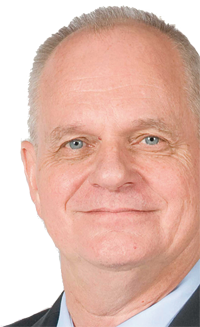

VAT moves through the supply chain by businesses charging VAT on their sales and deducting VAT on their purchases, in essence collecting VAT on their value added (hence the name value-added tax).
Only when a goods or service reaches the final consumer tax accrues to the treasury of a country. When certain goods or services are exempt, the supplier will not charge any VAT when selling them. That is the good news.
However, the exempt seller cannot deduct any VAT incurred on purchases related to the exempt sales. Therefore, businesses making exempts supplies are taxed on their related inputs.
That is the bad news. The non-recoverable input VAT becomes part of the cost base of the exempt business and, at least to a certain extent, the tax will be shifted forward in his sales price.
And, since the forwarded VAT is hidden in the sales price, it can also not be recovered by a business buying exempt services.
When the hidden VAT moving forward down the supply chain as part of the cost price, the hidden VAT will be included in the price of products and be taxed with VAT. This is called tax accumulation, and distorts the economic neutrality of VAT.
Way back, when VAT was introduced in France, one of its leading experts referred to exemptions as the cancer of VAT.
Logically, the question arises why then do countries decide to use exemptions? There exist mainly three reasons. VAT is considered to be a regressive tax because poorer people pay a larger percentage of their income in VAT than the better off.
To combat this, goods and services that are primarily consumed by lower-income groups are selected for exemption. Some countries choose to zero rate goods and services that fall under this heading.
Under a zero rate, the sales are untaxed as well but input tax can be reclaimed, which leads to a larger benefit for the final consumer.
The GCC Framework Agreement follows this rational by allowing member states to zero rate certain food items.
The second justification is for goods and services that are found to be meritorious or in the public interest. In this category, the Framework Agreement allows the member state to either exempt or zero-rate we find healthcare, education, and local transportation, charities and government services.
The last justification is of a technical nature: certain goods and services are difficult to tax, such as construction and real property leasing, and financial services.
Exemptions create an incentive for exempt businesses to self-produce goods and services in an effort to reduce their input-VAT costs, rather than purchasing these inputs from specialised firms, which ultimately leads to loss of economic efficiency. In other words, exemptions create an incentive for insourcing over outsourcing.
Member states should implement measures to discourage self-production by (partly) exempt businesses.
Generally, this is realised by taxing the self-supplies and requiring exempt businesses to self-assess this tax and account for it in the periodical VAT return as a taxable output with a refund for related input-VAT paid. Clearly, these special rules on self-supplies add to the complexity of VATs.
Classification problems arise for those products and services on the borderline of definition.
Classification problems may lead to extensive litigation, requiring the allocation of valuable and limited resources in terms of both people and funds that could be used more efficiently elsewhere.
Dr Robert F van Brederode is of counsel to Horwath Mak Ghazali in Oman. He is a tax lawyer, practitioner and scholar with over 30 years of experience in global VAT.
He served Crowe Horwath International as the global indirect tax leader, and was the national practice leader of the US member firm. Robert is the author of dozens of academic journal articles and 8 books. He can be reached at Robert.brederode@crowehorwath.om.
Dr Robert Brederode
Oman Observer is now on the WhatsApp channel. Click here



